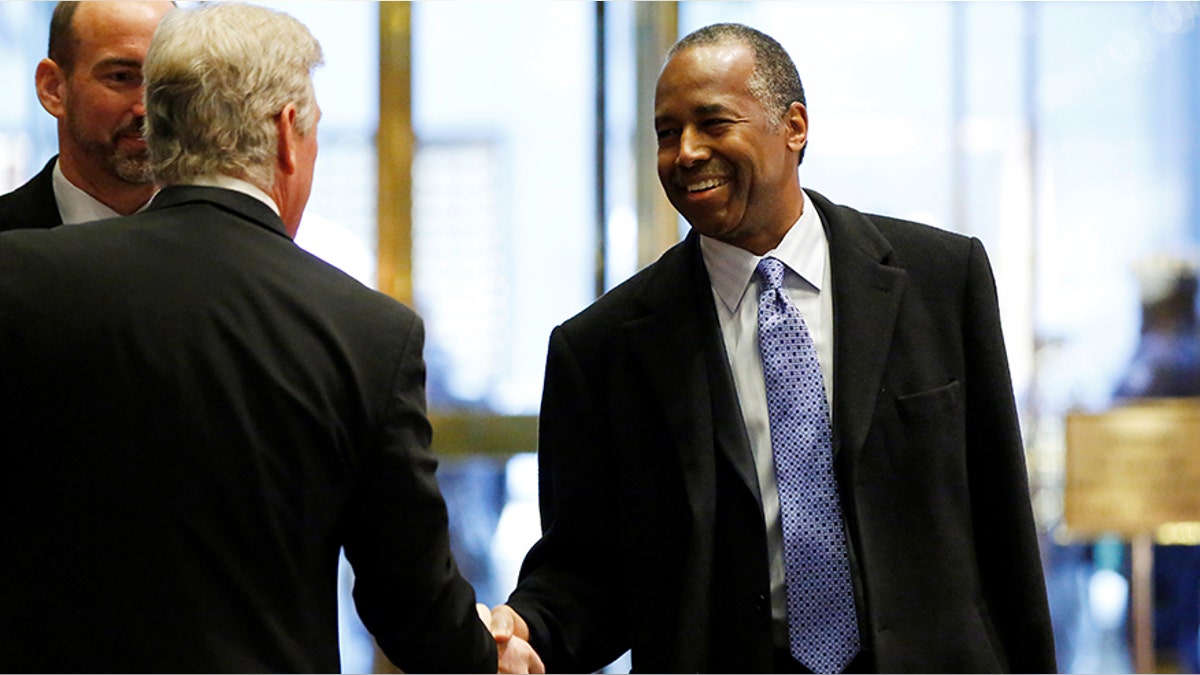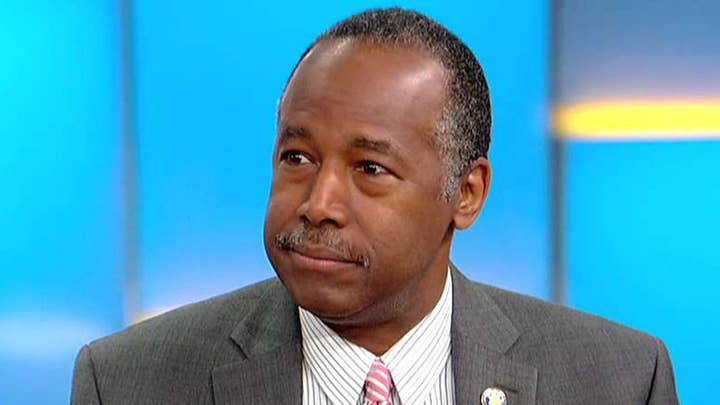
HUD Secretary Ben Carson says of his rent reform policy, "It is our attempt to give poor people a way out of poverty.” (Reuters)
Housing and Urban Development Secretary Ben Carson is firing back at critics who claim his proposal to reform federal government housing subsidies is an “example of the Trump administration’s war on poor people,” as one congressional Democrat put it.
“I would say it’s just the opposite,” Carson said in a phone interview this week with Fox News. “It is our attempt to give poor people a way out of poverty.”
Carson is proposing overhauling the HUD programs that help 4.7 million low-income, disabled and elderly people pay rent. He argues that the current system discourages work, discourages stable families, is overly complex and is financially unsustainable.
Among the proposals is simplifying the process by requiring residents to verify their income every three years, instead of every year. He also calls for increasing minimum monthly payments from $50 to $150 a month, and having households contribute 35 percent of their income toward rent instead of 30 percent (though this excludes the elderly and disabled).
Carson said he believes people on government assistance will welcome his plan if it’s not presented by “hysterical people who are saying, ‘These people hate you and they’re trying to balance the budget on your back and they don’t care.’”
"My best message is to ask yourself: What is your goal in life, and what is your goal for your children?” Carson said. “And how can you best achieve that, are you going to achieve that under the current system, or is there a better system that might be more effective?”
CARSON PROPOSES HIKING RENTS FOR SOME LOW-INCOME AMERICANS GETTING HOUSING SUBSIDIES
Louisiana Democratic Rep. Cedric Richmond, the chairman of the Congressional Black Caucus, has railed against the rent increases, calling Carson’s proposal an “immoral, ill-advised proposal” and the “latest example of the Trump administration’s war on poor people.”
Carson says his message to people receiving rental assistance is that the system is broken.

Louisiana Democratic Rep. Cedric Richmond, the chairman of the Congressional Black Caucus, has railed against the rent increases, calling Carson’s proposal “immoral, ill-advised proposal” and the “latest example of the Trump Administration’s war on poor people.”
Carson's proposal also includes work requirements, which he says will “incentivize people.” He says his proposal will encourage family unification by not keeping another earner, like a spouse, from living with a family and making the household ineligible for subsidies.
“We’re removing all those kinds of perverse disincentives,” Carson said.
As he developed the policy, Carson said, he has thought of the people he grew up with in Detroit who lived in government housing.
“They were very, very smart, clever,” he said. “But they were trapped in a system.”
He added: “They don’t know any other lifestyle. And that’s not necessarily their fault. I think that’s our fault. When I say our fault, I mean the government. We’re the ones who created these situations. And I think we have an obligation to fix them.”
"Is there a better system that might be more effective?”
Carson’s proposal would need to be passed by Congress. He says the released plan is “the beginning of a conversation.”
In recent months, Carson has faced other criticism at HUD, amid reports that a $31,000 dining room set had been ordered for his office to replace aging furniture. He eventually canceled the order amid an outcry over the high cost.
“It took a month to actually find out who actually signed off on that,” Carson said. “But the important thing is there were financial controls that were necessary that were not in place. We have put those in place. And the other important thing is that the order was cancelled with no consequences. So not a single penny that the taxpayers have to pay.”
Added Carson, “It still needs to be replaced, but I’ve directed my attention to other things.”
Carson, who ran in the 2016 Republican primary for president, worked as a neurosurgeon at Johns Hopkins before retiring and did not have a background in housing before President Trump tapped him for the job.
“I don’t know if 'enjoy' would be the right word," Carson said of his job. "But I recognize that this is something that is critically important. We’ve got to change this. Because the current system is not sustainable.”






















